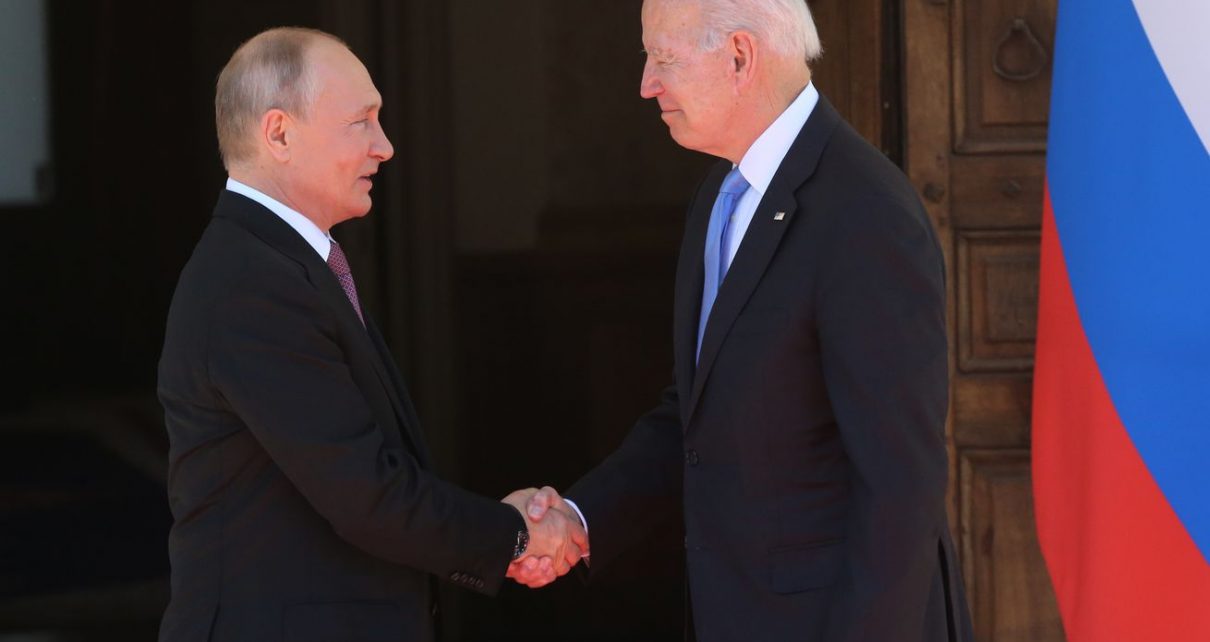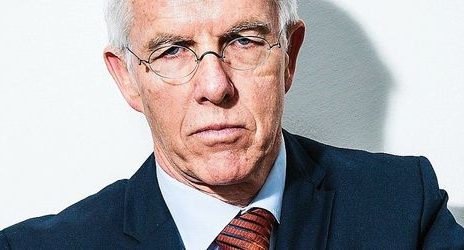
What Biden actually means when he says “all foreign policy is the logical extension of personal relationships.”
If one phrase defines President Joe Biden’s approach to negotiating, it’s “all politics is personal.” When he uses that line, he aims to convey a rock-ribbed belief that finding what the other person can and can’t accept — be it a member of Congress from the other party or a foreign leader — will eventually lead to better relations and even mutually agreeable deals.
During a Wednesday press conference following his Geneva summit with Russian President Vladimir Putin, Biden showed once more that he puts a lot of faith in that approach. “All foreign policy is the logical extension of personal relationships,” Biden said. “It’s the way human nature functions.”
That’s not Biden saying all it takes to improve US-Russia relations is to have a one-on-one chat with Putin, although they did have a roughly 90-minute discussion. It meant, as he went on to explain, that because of that discussion, both men are now clear on what red lines not to cross as they seek to cooperate on arms control, cybersecurity, and more.
That outcome, in Biden’s mind, was worth the trip.
“What I’m saying is I think there’s a genuine prospect to significantly improve relations between our two countries without us giving up a single, solitary thing based on principle and our values,” he told reporters. “This is not just about self-interest. It’s about mutual self-interest.”
It’s the clearest distillation yet of how Biden thinks about foreign policy and diplomacy. Sure, there are constraints on what can be achieved, but the only way to make progress is to hear the other person out and find areas of common ground.
The problem for Biden is that it might not work.
“Personal diplomacy can matter. But it’s not the foundation for foreign policy and can’t overcome major structural constraints or national interests,” said Elizabeth Saunders, an associate professor at Georgetown University.
Biden is hoping his personal touch will work on Putin
Every American president since George W. Bush has tried some sort of reset with Putin’s Russia with the hope of improving relations between the two countries. Some, like President Donald Trump, also believed that engaging mano a mano with Putin would get him to change his behavior.
But Biden does seem to believe that he offers something different: a clear-eyed view that he can’t change Putin, but he can work with him where the two countries’ interests align. Some of those include fighting terrorism, reaching a political solution in Syria, finding ways to coexist in the Arctic, reducing the likelihood of nuclear war, and more.
This is all a big bet for Biden to make, and the Geneva summit showed precisely why.
Other than a promise to hold talks on a future nuclear agreement and an end to cyber hacking, along with the return of ambassadors to each other’s capital cities, little of actual substance came out of the meeting.
“The image of flying somewhere to look the adversary in the eye and make a breakthrough is misleading. It’s very rare,” said Saunders, though she noted that “regular discussions can keep information flowing.”
What’s more, it’s possible the summit could end up backfiring on Biden, especially if Putin soon decides to launch a cyberattack against the US or allow prominent dissident Alexei Navalny to die in prison — two things Biden warned would be unacceptable to the US. That would put Biden in the position of having to retaliate forcefully with sanctions or other measures, experts say, derailing any efforts to get US-Russia relations back on track.
Knowing the long odds, even Biden acknowledged his bet might not pay off. “Let’s see what happens,” he said at his press conference. “I’m not confident [Putin] will change his behavior.”
Analysts share that skeptical view, saying that reiterating America’s stances won’t have much of an effect on Putin. “We can deliver a message, as other presidents have, but from the Russian perspective they’ve heard this before,” said Alina Polyakova, president and CEO of the Center for European Policy Analysis in Washington, DC.
But the president has now played his hand, and by doing so he’s put his “all foreign policy is personal” play to the test. Biden expects he’ll find out if he made the right call soon enough: “We’re going to be able to … look ahead in three to six months and say, ‘Did the things we agreed to sit down and try to work out, did it work?’”





